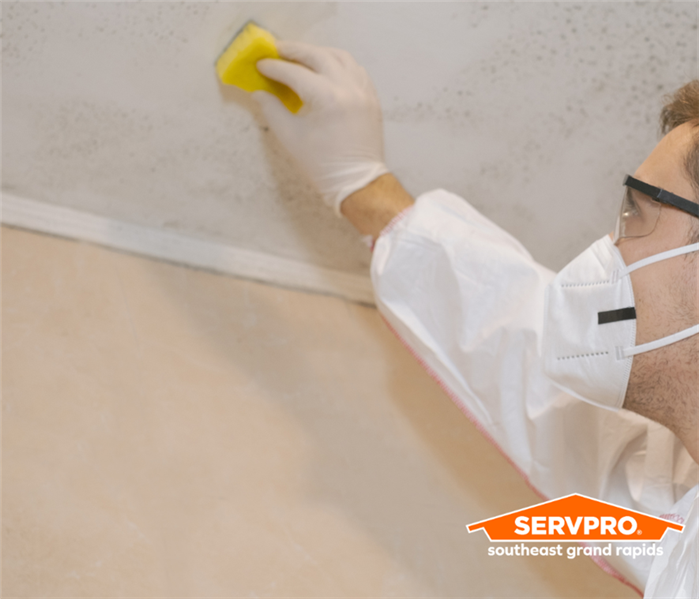5 Signs of Mold in Your Home After Winter
11/4/2024 (Permalink)
As winter fades and spring arrives, it’s important to check your home for signs of mold. Winter can create ideal conditions for mold growth—melting snow, high humidity, and poor ventilation all contribute to moisture buildup in your home. When left unchecked, this moisture can quickly turn into a mold problem, which poses health risks and damages your property. Here are five key signs of mold to watch for this spring and tips on what to do if you spot them.
Musty Odors
One of the earliest signs of mold growth is a persistent musty smell. If you notice an earthy or sour odor in certain areas of your home, especially in basements, attics, or crawl spaces, it’s likely mold may be present. Mold produces volatile organic compounds (VOCs) as it grows, which contribute to that unmistakable musty smell.Visible Spots on Walls or Ceilings
Mold often appears as black, green, or brown spots on walls, ceilings, or in damp areas like bathrooms and basements. During winter, moisture can seep into small cracks or accumulate in unventilated areas, leading to these visible signs of mold by spring. Regularly inspect walls and ceilings in areas prone to moisture buildup.Water Stains or Peeling Paint
Condensation on windows or water stains on walls can indicate underlying moisture problems that may lead to mold growth. Similarly, peeling or bubbling paint is a common sign of moisture damage. Mold thrives in damp, warm conditions, so any signs of moisture accumulation warrant close inspection for mold growth.Increased Allergy Symptoms
If you or your family experience increased allergy symptoms—like sneezing, runny nose, itchy eyes, or respiratory issues—mold might be present. Mold spores can cause these symptoms, especially in individuals with mold sensitivity. Monitor your health and be on the lookout for signs of mold if allergies persist.Warped or Buckled Flooring
Excess moisture from snowmelt or condensation can lead to warping or buckling in wood or laminate flooring. If you notice changes in your flooring after winter, it may be a sign of hidden mold growth beneath. Addressing warped flooring quickly can prevent further mold damage and structural issues.
If you find mold in your home, take action right away, call SERVPRO® of Southeast Grand Rapids. Our team specializes in mold removal and has the expertise to safely restore your home.
By staying vigilant and addressing moisture issues early, you can keep your home mold-free as winter gives way to spring. SERVPRO of Southeast Grand Rapids is here to help with any questions or remediation needs you may have—because a healthy home is a happy home!






 24/7 Emergency Service
24/7 Emergency Service
